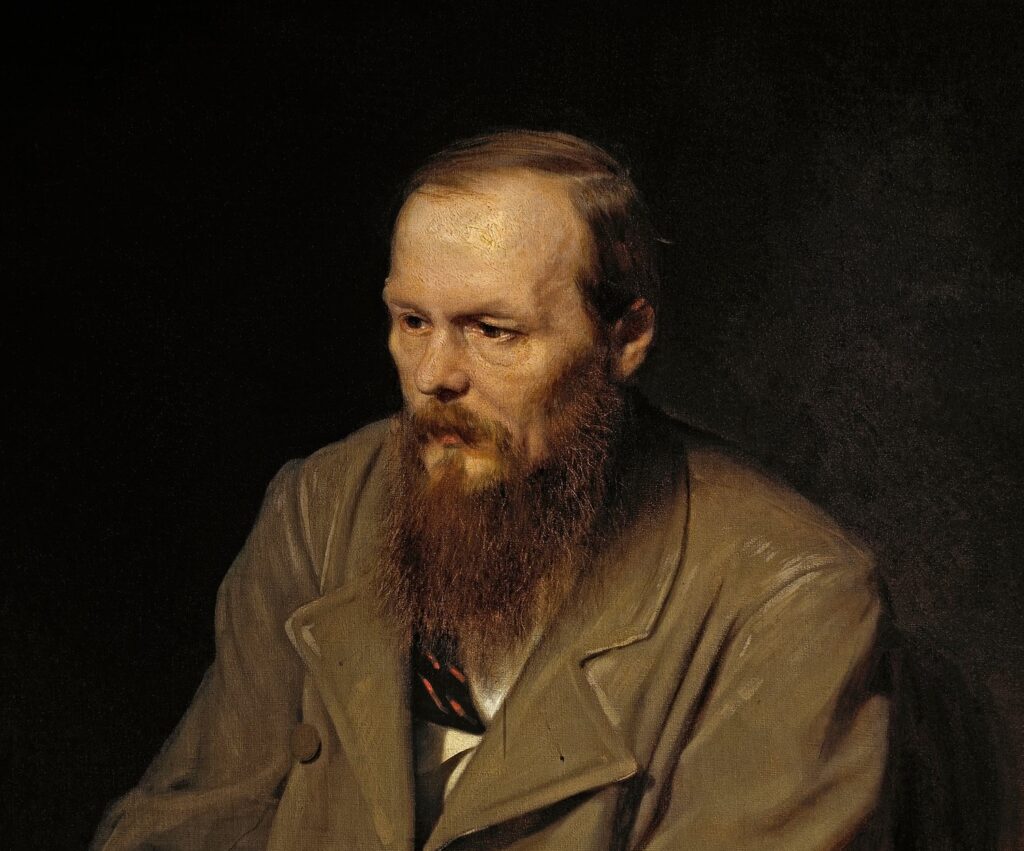Fyodor Dostoevsky? Prince Myshkin? Constance Garnett? Henry Carlisle? Olga Carlisle? Apocryphal?

Question for Quote Investigator: A major literary figure once wrote about the connection between children and spiritual health. Here are two versions:
(1) The soul is healed by being with children.
(2) Through children the soul is healed.
This remark has been attributed to the acclaimed Russian novelist Fyodor Dostoevsky, but I have never seen a solid citation. Would you please help me to precisely locate the statement in Russian and English?
Reply from Quote Investigator: Fyodor Dostoevsky published the novel Идиот (“The Idiot”) serially between 1868 and 1869. An English translation by Constance Garnett appeared in 1913. During one scene in chapter six the main character Prince Lev Nikolayevitch Myshkin spoke about the children of a village and their schoolteacher Jules Thibaut. Boldface added to except by QI:1
At first he used to shake his head and wonder how it was the children understood everything from me and scarcely anything from him; and then he began laughing at me when I told him that neither of us could teach them anything, but that they can teach us. And how could he be envious of me and say things against me, when he spent his life with children himself! The soul is healed by being with children.
Below is the passage in Russian as it appeared in a 1973 edition of Идиот (“The Idiot”) from the U.S.S.R. Academy of Sciences:2
он сначала всё качал головой и дивился, как это дети у меня всё понимают, а у него почти ничего, а потом стал надо мной смеяться, когда я ему сказал, что мы оба их ничему не научим, а они еще нас научат. И как он мог мне завидовать и клеветать на меня, когда сам жил с детьми! Через детей душа лечится.
Below are additional selected citations in chronological order.
Fyodor Dostoevsky published the novel Братья Карамазовы (“The Brothers Karamazov”) serially between 1879 and 1880. An English translation by Constance Garnett appeared in 1912. The character Father Zossima expressed a thematically related viewpoint about children:3
Love children especially, for they too are sinless like the angels; they live to soften and purify our hearts and as it were to guide us. Woe to him who offends a child!
In 1969 Signet Classics published an English edition of “The Idiot” translated by Henry and Olga Carlisle. The key passage was rendered as follows:4
At first he just shook his head and wondered how the children understood everything from me and hardly anything from him, and then he began laughing at me when I told him that neither of us would teach them anything, but they would teach us. And how could he be jealous and speak against me when he lived among children himself! Through children the soul is healed.
In 2000 “The New Encyclopedia of Christian Quotations” compiled by Mark Water included the following entry:5
The soul is healed by being with children.
Fyodor Dostoevsky
In summary, Fyodor Dostoevsky deserves credit for this statement which is spoken by the character Prince Myshkin in Russian in the novel “The Idiot”. Multiple English renderings were created by different translators. Version one occurred in the 1913 translation by Constance Garnett. Version two occurred in the 1969 translation by Henry and Olga Carlisle.
Image Notes: Portrait of Fyodor Dostoevsky by Vasily Perov circa 1872. This public domain image has been cropped and resized.
Acknowledgements: Great thanks to Marc Bubel and Mardy Grothe whose inquiries led QI to formulate this question and perform this exploration. Grothe created the wonderful website “Great Opening Lines in World Literature”. Thanks to Jeremy Marchant who emphasized that the passage in “The Brothers Karamazov” was communicated by a fictional character and not directly by Fyodor Dostoevsky.
- 1913, The Idiot: A Novel in Four Parts by Fyodor Dostoevsky, Translated from Russian by Constance Garnett, Chapter 6, Quote Page 65, William Heinemann, London. (Google Books Full View) link ↩︎
- 1973, Ф.М.ДОСТОЕВСКИЙ (F.M.DOSTOEVSKY), ПОЛНОЕ СОБРАНИЕ СОЧИНЕНИЙ В ТРИДЦАТИ ТОМАХ (COMPLETE WORKS IN THIRTY VOLUMES), ХУДОЖЕСТВЕННЫЕ ПРОИЗВЕДЕНИЯ ТОМА I-XVII (WORKS OF FICTION, VOLUME 1-17), ТОМ ВОСЬМОЙ (VOLUME EIGHT), ИДИОТ (IDIOT), Chapter 6, Quote Page 58, АКАДЕМИЯ НАУК СССР (USSR ACADEMY OF SCIENCES), ИНСТИТУТ РУССКОЙ ЛИТЕРАТУРЫ (ПУШКИНСКИЙ ДОМ), (INSTITUTE OF RUSSIAN LITERATURE (PUSHKIN HOUSE)), ИЗДАТЕЛЬСТВО «НАУКА», ЛЕНИНГРАДСКОЕ ОТДЕЛЕНИЕ, ЛЕНИНГРАД (PUBLISHING HOUSE “SCIENCE”, LENINGRAD BRANCH, LENINGRAD) (Internet Archive at archive.org) ↩︎
- 1912, The Brothers Karamazov: A Novel in Four Parts and an Epilogue by Fyodor Dostoevsky, Translated from the Russian by Constance Garnett, Part 2, Book 6, Chapter 3, Quote Page 339, William Heinemann, London. (Google Books Full View) link ↩︎
- 1969, The Idiot by Fyodor Dostoyevsky, Translated by Henry Carlisle and Olga Carlisle, Chapter 6, Quote Page 87 and 88, Signet Classics: The New American Library, New York. (Verified with scans) ↩︎
- 2000, The New Encyclopedia of Christian Quotations, Compiled by Mark Water, Topic: Children, Quote Page 166, Baker Books: A Division of Baker Book House Company, Grand Rapids, Michigan. (Verified with scans) ↩︎